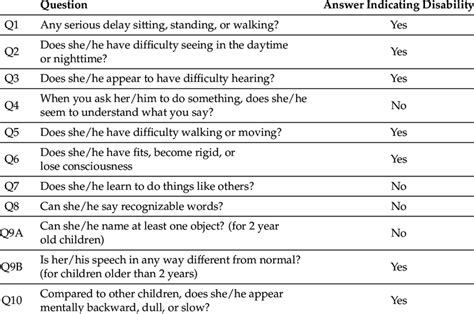In a world often designed for the able-bodied, people with disabilities face unique challenges and perspectives. By asking respectful and considerate questions, we can create a more inclusive and understanding society. Here are some thoughtful inquiries to engage disabled individuals and foster meaningful conversations:

Curiosity with Care: Questions to Avoid
It’s essential to approach these questions with sensitivity and avoid stigmatizing or invasive inquiries. Refrain from asking:
- “What’s wrong with you?”
- “Will your condition get worse?”
- “Can you get a cure?”
Respecting Independence and Abilities
Focus on what disabled people can do, not what they can’t. Ask questions that highlight their strengths and abilities:
Proficiencies and Accomplishments
- “What are your talents and interests?”
- “How do you overcome challenges in your work or daily life?”
- “Are there any assistive technologies or adaptations that help you succeed?”
Advocacy and Inclusivity
- “What are the most significant barriers you face in society?”
- “What can we do as a community to create a more inclusive environment?”
- “Do you have any recommendations for improving accessibility in public spaces or services?”
Experiences and Perspectives
Understand the lived experiences of disabled people by asking questions about their perceptions and emotions:
Perceptions and Experiences
- “How does your disability impact your daily life?”
- “Have you experienced discrimination or prejudice?”
- “What are the most inspiring or challenging aspects of living with a disability?”
Challenges and Resilience
Acknowledge the difficulties disabled people encounter and ask about their coping mechanisms:
Challenges and Resilience
- “What are the greatest challenges you’ve faced as a disabled person?”
- “How do you stay positive and motivated in the face of adversity?”
- “What support systems or resources have been most helpful to you?”
Strategies for Communication
Respect different communication styles and ask about preferences:
Communication Preferences
- “Do you prefer specific communication methods or assistive devices?”
- “How can I make my communication more accessible and understandable?”
- “Would you like me to ask yes/no questions or allow more time for responses?”
Empowering Questions
These empowering questions focus on the value and agency of disabled people:
Empowerment and Value
- “What do you want people to know about disability?”
- “How can I be a better ally or advocate?”
- “What are your hopes and dreams for a more just and inclusive society?”
Tables for Further Exploration
| Disability | Prevalence |
|---|---|
| Mobility Disability | 13.7% |
| Cognitive Disability | 12.6% |
| Blindness or Low Vision | 5.9% |
| Deafness or Hard of Hearing | 4.1% |
| Characteristic | % of People with Disabilities |
|---|---|
| Labor Force Participation | 20.4% |
| Unemployment Rate | 9.6% |
| Median Household Income | >$27,000 less than non-disabled households
| Barrier Type | % of People with Disabilities Reporting |
|---|---|
| Physical Barriers (e.g., stairs) | 62% |
| Transportation Barriers | 54% |
| Information Barriers (e.g., lack of closed captions) | 38% |
| Attitudinal Barriers (e.g., prejudice) | 35% |
| Benefit | Impact |
|---|---|
| Increased Economic Growth | Estimates range from $12-26 trillion per year |
| Improved Health Outcomes | Access to healthcare, education, and employment |
| Enhanced Social Cohesion | Fosters a sense of belonging and community |
| Increased Innovation | Diverse perspectives drive creativity and problem-solving |
Tips for Asking Respectful Questions
- Approach conversations with empathy and respect.
- Use respectful language and avoid ableist terms or assumptions.
- Listen actively and allow ample time for responses.
- Be patient and understanding, especially when discussing sensitive topics.
- Ask permission before touching someone or their assistive devices.
- Respond to answers thoughtfully and avoid interrupting.
- Thank the person for sharing their experiences and insights.
Conclusion
Asking considerate and respectful questions to disabled people is crucial for creating a more equitable and inclusive society. By engaging in open and thoughtful conversations, we can better understand their experiences, address their needs, and empower them to live full and meaningful lives.
Remember, disability is a part of human diversity, and each person’s journey is unique. By approaching conversations with curiosity, empathy, and respect, we can foster a world where all individuals feel valued and included.
